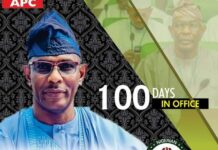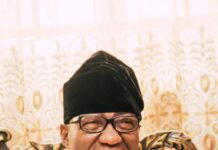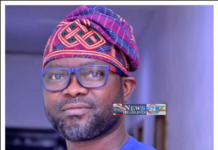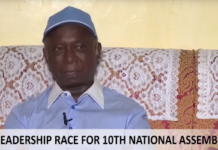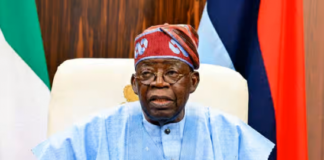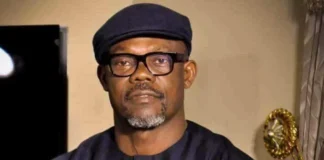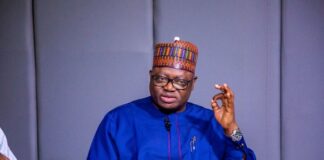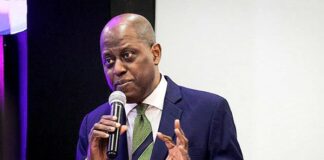Amina Mohammed, the deputy secretary-general of the United Nations, has strongly denied claims that she was involved in the illegal export of African rosewood, also known as kosso, from Nigeria to China, a trade estimated to be worth $1 billion in the last four years.
The Environmental Investigation Agency (EIA), a non-governmental organisation that specialises in investigating environmental crimes, claimed that Mohammed might have derived personal benefits from signing thousands of allegedly backdated permits in January 2017 which it said were used to clear illegal rosewood exports to China.
At the time, she was preparing to leave as Nigeria’s minister of environment, having been appointed deputy secretary-general of the UN.
EIA’s report said over 1.4 million illegal rosewood logs from Nigeria, worth $300 million, were detained at the ports in China in 2016 but were released after the presentation of CITES (the Convention on International Trade in Endangered Species of Wild Fauna and Flora) certificates signed by her.
But Mohammed on Friday sternly denied the allegations in an interview with TheCable, maintaining that she spent her time at the ministry working to eliminate the illegal export of the tropical hardwood used for rosewood furniture in China.
“No permits were backdated or illegally signed by me. We are therefore appalled if any legally obtained or forged certificates were used by unscrupulous rosewood traders to circumvent exportation procedures,” she said.
“Not only do I decry fraud and corruption, we also categorically reject any allegations of corruption or coercion in our effort to better address illegal logging and exportation.”
“I categorically deny receiving any bribe. It has never been in my character. I never demanded neither did I collect any bribe, either cash or material,” she further told TheCable.
Mohammed said when she was appointed minister of environment in November 2015, “one of the first issues I had to deal with was deforestation. It was a huge concern as Nigeria was losing its forest cover at an alarming rate… For me, protecting the environment is sacrosanct. When I was minister, one of my first acts was to tackle illegal logging. What I found on ground was alarming”.
The former presidential adviser, who was recently named Diplomat of the Year by the Foreign Policy Group, also spoke on the Lake Cad crisis, the Ogoni clean-up, and her new assignment in New York.
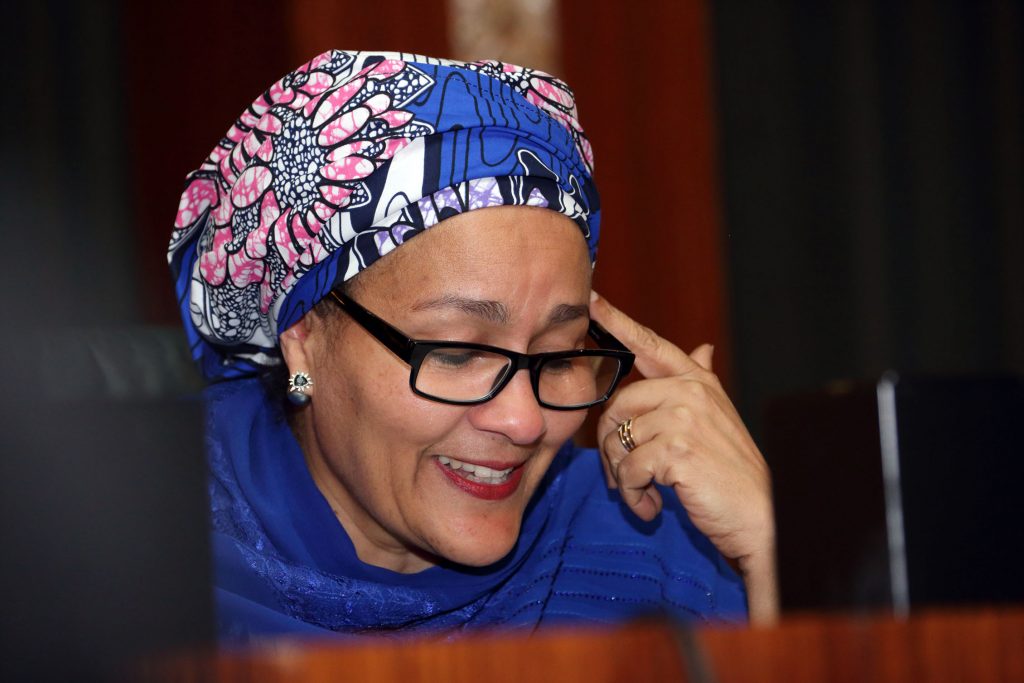
The Full Interview
TheCable: It was reported by Nigerian newspapers that you are under investigation for $1 billion illicit trade in African rosewood. Who is investigating you?
Amina Mohammed: I read the headline and the body of the story but I did not see anywhere they reported who is probing me. Is it the Nigerian government or the Chinese government? I am not under any probe. I am not aware of any. I think the confusion came from the name of the NGO that did the report, the Environmental Investigation Agency (EIA). It is not an agency of government. It is a non-governmental organisation. Their report says the illegal trade in kosso, or African rosewood, is worth $1 billion over the years, dating back to 2013 before I was appointed minister. They also said wood exports from Nigeria worth about $300 million were detained at the Chinese ports. EIA did not say I am under probe, much less for taking part in a $1 billion illicit trade. I am a bit surprised by the impression created by the reports.
TheCable: Some of the traders who spoke to EIA’s undercover investigators said they raised $1 million to bribe government officials to help issue export certificates retrospectively for the detained containers at Chinese ports. They also alleged that wealthy Chinese entrepreneurs gave dollars to the minister. Are you specifically denying receiving any bribe?
Mohammed: I categorically deny receiving any bribe. It has never been in my character. I never demanded neither did I collect any bribe, either cash or material.
TheCable: Maybe some people used your name to collect bribe?
Mohammed: I honestly cannot say. But I was not part of any bribery scheme and I did not collect any bribe to issue the permits.
TheCable: The EIA says over 1.4 million illegal rosewood logs from Nigeria, worth $300 million, were laundered into China in 2016 under your watch as minister of environment. How true is this?
Mohammed: When I became minister of environment in November 2015, one of the first issues I had to deal with was deforestation. It was a huge concern as Nigeria was losing its forest cover at an alarming rate. As you know, sustainable environment is critical to the achievement of the sustainable development goals (SDGs). Goal No. 15 is specifically about protecting, restoring and promoting sustainable use of terrestrial ecosystems, sustainably managing forests, combating desertification and halting and reversing land degradation, as well as halting biodiversity loss. For me, protecting the environment is sacrosanct. As minister, one of my first acts was to tackle illegal logging. What I found on ground was alarming.
Within a short period, we began to put policies in place at the ministry to tackle this menace. And we saw the results almost immediately. This was further helped by the listing of kosso, also known as African rosewood (Pterocarpuse rinaceus), in the Convention on International Trade in Endangered Species of Wild Fauna and Flora (CITES) Appendix II. Kosso logging therefore requires issuance of CITES permits or certificates because it is a protected wood, if you will. The conditions for export are tough. Any shipment without CITES permits is illegal. The CITES regulation states that the country of import must report such shipments. They will either be confiscated or returned. That was a product of our efforts. The legal or legitimate rosewood trade is officially communicated between China and Nigeria. This is done through the scanning and sending of issued CITES. That way, fakes can be identified.
The Nigerian CITES Management Authority and the Chinese CITES Management Authority have a good relationship. A very cordial one at that. They never reported to Nigeria that any container was stopped at their ports as of the end of 2016. But I am aware of two cases when exporters came to the ministry to complain. They came to us on their own, by the way. They wanted CITES certificates for exports that had already left Nigerian ports. One request was refused by the ministry outright. The other was granted on two conditions: one, that the company would be fined and two, the company would be suspended for six months. The aim was to send a warning to others who did not comply prior to exportation. The ministry communicated this immediately to the CITES secretariat.
TheCable: But why refuse one request and grant the other?
Mohammed: Okay, let me explain this. There were two temporary bans on the export of kosso. The first was from April 30th to June 6th, 2016. The second was from December 31st, 2016 and it was to last for three months. One of the two exporters had a bad case — he did not process his CITES permit at all. He now had issues at Chinese ports and ran to the ministry. This was unacceptable. There was nothing we could do. However, the other company had actually carried out all necessary processes and met all requirements before the December 31st deadline for the second temporary suspension. The offence, as it were, was that he did not wait for the CITES certificate to be issued before shipping. So we approved with sanctions. Is that clear?
TheCable: Yes, but why impose two temporary suspensions?
Mohammed: The initial suspension was put in place to enable the ministry elicit inputs from stakeholders into strengthening the policy environment. In consideration of the numerous contractual obligations in the manufacturing sector where processes had already been started, we opened up the process. We then reinstated the suspension until the work of an inter-ministerial committee was finished. When I left office, the suspension was still in place. It is important to note that these temporary suspensions were made in the context of a legal process. In Nigeria, today, with a CITES certificate it is not illegal to export rosewood. However, we know that there is a huge illicit market in rosewood and we are, of course, outraged and deeply concerned. That is why we worked hard at addressing the inadequate policy and regulatory environment.
The first suspension from April 13th 2016 was placed with conditions that we would give the industry notice to prepare for the consequences of the suspension. Remember we are dealing with an industry that employs thousands of young people who do export legally with a CITES certificate. In the first week of June, that was about two months later, we convened an emergency national stakeholders meeting on afforestation. It was agreed to lift the suspension to address unforeseen challenges with legitimate companies that had already contracted business around the world. The decision was communicated to Nigerian customs and the ministry of finance.
In July, deforestation was also discussed at the National Council on Environment (NCE) where it was resolved to encourage states to promote forestry development and afforestation programmes, as well as the use of alternative sources of energy. It was also agreed that further exploitation of African rosewood, or kosso, should be suspended for three months, with effect from December 31st 2016. What the ministry did was to make efforts to apply the necessary measures to monitor the volume of trade exploitation and identify the key challenges at all levels of government in Nigeria. You know that we run a federal system and therefore cannot force other levels of government to comply without proper legislation.
TheCable: Did you enforce the second temporary suspension on December 31?
Mohammed: Yes we did. In September 2016, the house of reps convened an ad-hoc committee on afforestation and asked the ministry for information on illegal logging. They were to investigate massive deforestation and corruption crippling the environment and its impact on climate change. The ministry also had its committee which was constituted together with other stakeholders. So on December 31st 2016, the second temporary suspension came into effect. It was to last for three months, as I said, to enable the ministry develop policies to guide the issuance of CITES, going forward, and sustainable forest management. I got the letter from the ministry of finance confirming the suspension on January 9th or thereabouts. By then I had been announced as deputy secretary-general-designate of the United Nations. But President Muhammadu Buhari requested that I should conclude important work on the Ogoni Clean-up, among other responsibilities. So I stayed on till February 24th, 2017 when I signed off from the cabinet to start my new assignment.
TheCable: You still signed CITES permits after your appointment as UN DSG?
Mohammed: Yes. I was still the minister of environment, as you know, till February 24th. On January 16, 2017, I signed 2992 CITES permits. These were the last permits I signed. A quarter of the permits, I understand, were not used by the exporters since they could not ship their wood before the suspension on wood and wood products as at 31st December 2016.
TheCable: You signed CITES permits in January even while a three-month temporary ban imposed on December 31 was still in force?
Mohammed: There were several reasons. One, there were delays in issuing CITES prior to the 31st December suspension because there were no physical certificates at the ministry. We asked the security printing and minting company — printers of all government security documents — to print new watermarked CITES permits with enhanced security features to avoid fakes. They were only able to deliver the physical certificates in the first week of January 2017. This played a role in the late signing of the CITES. Two, I was away from office in the first week of January. I was on an official duty to the Niger Delta. Three, between January 10th and 15th, I was on a special assignment as leader of the presidential delegation to the governments of Algeria and Tunisia on the African Union. I signed the certificates on January 16th on my return. It was a Monday.
Four, we need to be clear on something: exporters were given prior notice that the suspension was coming into effect on the 31st December. They were therefore asked to initiate and complete processes for the issuance of CITES certificates before the period ending 31st of December if they intended to export. With the ban now in place, the department of forestry carried out due diligence and processed the requests in accordance with the established practice. The due diligence was on companies that had commenced and met all the requirements prior to the suspension date of 31st December. The certificates signed and issued in January were only to those who adhered to this process. Therefore, the issue of backdating or retrospective approval does not apply in any sense whatsoever.
TheCable: We still need clarification on something: the 2992 CITES permits that you signed — were they used to clear the backlog of containers detained at Chinese ports? CITES rules prohibit kosso from leaving Nigerian ports without the permits…
Mohammed: With the lifting of the first suspension, companies that were processing their CITES certificates had until the 31st of December to do so. The signing of the certificates was delayed because of the more stringent due process and a lack of securitised watermarked certificates which were being produced. This resulted in certificates being signed in mid-January 2017 for processes completed by the 31st of December 2016. No permits were backdated or illegally signed by me. We are therefore appalled if any legally obtained or forged certificates were used by unscrupulous rosewood traders to circumvent exportation procedures. Not only do I decry fraud and corruption, we also categorically reject any allegations of corruption or coercion in our effort to better address illegal logging and exportation.
To the best of my knowledge the CITES certificates I signed were for shipments that were to be made and NOT those that had been shipped. If there has been illegal exports of kosso wood, the customs department would be in a better position to confirm this. Our process with CITES has enabled Nigeria address to a large extent the exploitation of kosso wood. The challenges are many but I am very proud of our team at the ministry who in difficult circumstances have tried to address this crisis of deforestation.
TheCable: But the EIA investigation says the backlogs cleared at Chinese ports after you signed the certificates?
Mohammed: Like I said earlier, China CITES Management Authority and Nigeria CITES Management Authority have an understanding and cooperation on trade of kosso. The CITES permits are scanned to the China Management Authority for verification before the shipments are released. This system has helped to check fake CITES permits. And the Chinese government are mandated to inform the Nigerian government in the event that rosewood is shipped without proper paper work. If the Chinese did not inform us, we can never know what has been illegally shipped. I specifically deny any links between the time I signed the permits and the reported clearing of backlogs at Chinese ports. There is no such evidence. I was asked the same question by a Chinese journalist and I asked for proof, and up till now he has not provided me with any.
TheCable: You repeatedly spoke about cleaning up the rosewood trade. This was responsible for the suspensions. Were you able to establish controls for kosso exports?
Mohammed: Yes, we did. Our actions are always guided by their impact on people and the planet. With regards to rosewood specifically, Nigeria co-sponsored the transfer of rosewood from Appendix III into Appendix II of CITES, including moving rear spices such as pangolin and African lions into Appendix I. At the National Council on Environment chaired by me, a resolution was passed to suspend further exploration in Taraba state. I also established the inter-ministerial committee that provided policy recommendations to combat deforestation, enhance reforestation or afforestation, sustain timber trade and the management of forest and trees outside forest landscape. There were representatives from different government bodies in the committee, including state governments. These recommendations along with the outcomes from the ad-hoc parliamentary committee were presented to the National Economic Council and the Federal Executive Council.
As earlier clarified, a more stringent process for issuing CITES certificates had been established at the time I left government. The issuance of CITES certificate for wood export on commercial basis commenced on the 16th August, 2016, following the request for CITES permits for rosewood by the international markets early in 2016 and consensus agreement by African countries and the US in Dakar, Senegal, at a meeting from 15th-17th March 2016. This was part of the efforts to fight illegal wild trade. The decision was unanimously endorsed for global enforcement at the 17th Conference of Parties (COP17), held in Johannesburg, South Africa, from 24th September to 5th October 2016. On 3rd February 2017, the inter-ministerial committee on afforestation that I mentioned was inaugurated.
TheCable: Away from kosso trade now. What has been your experience so far as the UN deputy secretary-general? You are familiar with the UN system but this appears to present different challenges altogether.
Mohammed: Serving alongside Secretary-General Antonio Guterres to impact the lives of 7.5 billion people is a humbling experience and an amazing opportunity to bring networks, partnerships, experiences and the world together to find solutions to our challenges. The focus of our work is at a regional and global level with an emphasis on results at country level.
TheCable: From your experience with delivering the MDGs and shaping the SDGs, how can Nigeria and other African countries better implement the SDGs?
Mohammed: The SDGs framework is an integrated response to economic, social and environment challenges. The 17 global goals help to guide country priorities. With the MDGs the focus was on the social pillar, while the SDGs have a more holistic approach. Implementing the SDGs in Nigeria and other African countries will require robust mid- to long-term plans, strong institutions and inclusive processes. It will also require investment strategies that bring domestic resources, the private sector and citizens themselves behind implementing the SDGs.
TheCable: What really are the roadblocks to achieving these goals and milestones?
Mohammed: Leadership and political will be key to setting the stage for engaging in the implementation of these goals. These will need to be accompanied by strong institutions, governance and capacities to deliver. Underpinning this will require partnerships across all levels of government, across all regions and internationally. New ways of doing business, mindset changes will be needed to address the scale of the challenges, many of which go beyond the borders of countries to regions, for example the Sahel.
TheCable: One of the major issues you had to handle as minister was the global logging and deforestation problem. How bad are they?
Mohammed: Among the many priorities in my former ministry the issue of deforestation was a critical challenge that the country faced. We took this head on. The level of deforestation put Nigeria at a forest cover of less than 5% while the international standard is 25%. Nigeria’s case is complex. Wood is used for cooking, as an income source for the poor and at the same time part of illegal plundering of our natural resources. We were therefore keen to address the issue of illegal logging and exportation. Nigeria signed up to CITES and our push to get rosewood into Annex II of the CITES provision provided an opportunity to begin to control the rate of deforestation in the country. This was followed by a number of actions that we took to clear a pathway to a stronger policy and regulatory environment.
TheCable: Nigeria in particular is battling deforestation especially at the sub-national level. What are the stubborn issues, from your first-hand experience?
Mohammed: The first challenge is that we are dealing with a federal system in which policies and laws have different legal mandates. Getting agreement from local authorities to implement policies is a challenge. Weak institutions, poverty and governance issues also play a part in exacerbating the issue. Another challenge is the ready market in other parts of the world, who proactively exploit the weak regulatory environment.
TheCable: And then we have the Lake Chad challenge. Is it a lost case, given the kind of resources and commitment required?
Mohammed: Absolutely not. Lake Chad provides for huge opportunities in the face of enormous challenges. There are questions of recharging Lake Chad pursued by the government and at the same time ensuring adequate resources are available for government to deal with the challenges. The SDGs provide a viable framework for dealing with a multiplicity of opportunities but will require support from the international community.
TheCable: How much of these issues are fueling poverty and possibly even crisis in northern Nigeria?
Mohammed: Climate change, unemployment, inadequate investment and conflict are exacerbating poverty. It is prolonging the crisis as without a stable environment one cannot make the necessary investments to achieve the SDGs.
TheCable: The Ogoni Clean-up has dominated news in recent times. When you were minister of environment, we thought work was going to start. Are you keeping close tab on developments, even though it is no longer under your purview?
Mohammed: The ministry under the able leadership of Ibrahim Jibril Usman is continuing to implement the plan for the Ogoni Clean-up and as I recently saw in the newspapers the conclusion of the clean-up demonstrations. I believe that the actions taken are going in the right directions
TheCable: How is a typical day in your life these days?
Mohammed: Extremely busy and rewarding. The tasks delegated to me by the secretary-general keeps me engaged. The SG has asked me to lead the re-positioning of the United Nations Development System requested by member states and has delegated to me a number of other issues including overseeing the UN’s delivery of the 2030 agenda, migration, financing the SDGs, humanitarian-development nexus and tackling climate change. We are making a lot of progress in ensuring that the UN is fit for purpose and meets the needs of governments at country level. All of this is geared towards making a meaningful difference in the lives of people in Nigeria and around the world.
TheCable NG
MAIN PHOTO: UN/MARK GARTEN



